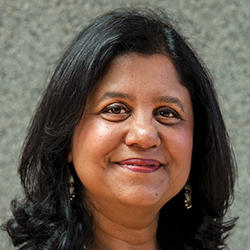Abstract
Inflammatory diseases in skin have been shown to develop from aberrant interactions between skin immune cells and resident cells of the tissue. The innate immune arm, specifically macrophages have been shown to play critical role in driving the disease conditions since depletion of macrophages significantly reduces inflammatory burden in skin. While the crosstalk between macrophages and skin compartments has been studied largely at the level of cytokines and chemokines, much less has been understood at the level of metabolic crosstalk between macrophages and other skin compartments. Metabolic factors have been shown to play supportive, instructive and permissive roles, essential for regulating fate decision in immune cells. The acquired metabolic state depends on the functional requirements of the immune cells and the local availability of carbon and nitrogen sources. Innate immune cells especially macrophages have been shown to exhibit remarkable functional and metabolic flexibility, capable of acquiring distinct M1 and M2 fates, in vitro. In inflammatory skin conditions such as wounding, atopic dermatitis and psoriasis macrophages have been shown to acquire distinct functional states which exacerbate disease condition. Consistently, loss of macrophages lead to remarkable rescue of the diseased skin. However, much less is understood about how the metabolic crosstalk between different skin cells and macrophages bring about these switches. This is specifically due to additional network of crosstalk of the macrophages with the adaptive immune arm. In our work, we have used embryonic skin specific integrin b1 KO model of inflammation to investigate the metabolic crosstalk between skin compartments with macrophages to understand the initial event that drive inflammatory responses in skin. This allows us a rather simplified system since the embryonic skin lacks the adaptive immune arm.
Inflammatory diseases in skin have been shown to develop from aberrant interactions between skin immune cells and resident cells of the tissue. The innate immune arm, specifically macrophages have been shown to play critical role in driving the disease conditions since depletion of macrophages significantly reduces inflammatory burden in skin. While the crosstalk between macrophages and skin compartments has been studied largely at the level of cytokines and chemokines, much less has been understood at the level of metabolic crosstalk between macrophages and other skin compartments. Metabolic factors have been shown to play supportive, instructive and permissive roles, essential for regulating fate decision in immune cells. The acquired metabolic state depends on the functional requirements of the immune cells and the local availability of carbon and nitrogen sources. Innate immune cells especially macrophages have been shown to exhibit remarkable functional and metabolic flexibility, capable of acquiring distinct M1 and M2 fates, in vitro. In inflammatory skin conditions such as wounding, atopic dermatitis and psoriasis macrophages have been shown to acquire distinct functional states which exacerbate disease condition. Consistently, loss of macrophages lead to remarkable rescue of the diseased skin. However, much less is understood about how the metabolic crosstalk between different skin cells and macrophages bring about these switches. This is specifically due to additional network of crosstalk of the macrophages with the adaptive immune arm. In our work, we have used embryonic skin specific integrin b1 KO model of inflammation to investigate the metabolic crosstalk between skin compartments with macrophages to understand the initial event that drive inflammatory responses in skin. This allows us a rather simplified system since the embryonic skin lacks the adaptive immune arm.
Bio
Srikala Raghavan obtained her Ph.D from the University of Cambridge in Drosophila Genetics and did her post-doctoral training with Prof. Elaine Fuchs at the University of Chicago and later at The Rockefeller University. In 2005, Dr. Raghavan established her lab at Columbia University NY, at the College of Dental Medicine and Dept of Dermatology. In 2012, she was recruited to inStem Bangalore to establish the Centre for Inflammation and Tissue Homeostasis where she is an Associate Professor. In January 2020, Prof. Raghavan joined A*SRL, A*STAR as a Principle Investigator. The Raghavan Lab studies stem cell homeostasis and immune regulation in the skin.
Srikala Raghavan obtained her Ph.D from the University of Cambridge in Drosophila Genetics and did her post-doctoral training with Prof. Elaine Fuchs at the University of Chicago and later at The Rockefeller University. In 2005, Dr. Raghavan established her lab at Columbia University NY, at the College of Dental Medicine and Dept of Dermatology. In 2012, she was recruited to inStem Bangalore to establish the Centre for Inflammation and Tissue Homeostasis where she is an Associate Professor. In January 2020, Prof. Raghavan joined A*SRL, A*STAR as a Principle Investigator. The Raghavan Lab studies stem cell homeostasis and immune regulation in the skin.
Chair
John COMMON, A*SRL, Singapore
Leah VARDY, A*SRL, Singapore
John COMMON, A*SRL, Singapore
Leah VARDY, A*SRL, Singapore

